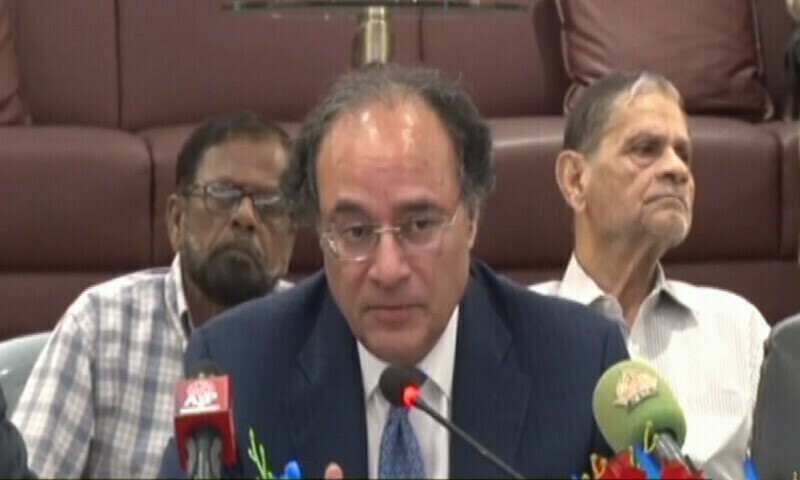The finance ministry on Tuesday released its monthly outlook for July stating that the Consumer Price Index (CPI) inflation was heading towards single digits.
The CPI measures household inflation and includes statistics about price change for categories of household expenditure.
According to the Pakistan Bureau of Statistics (PBS), the country’s CPI increased to 255.94 points in June from 254.78 points in May of 2024. It averaged 93.08 points from 2001 until 2024, reaching an all-time high of 264.46 points in March of 2024 and a record low of 31.12 points in July of 2001.
“In June 2024, CPI inflation reached the cusp of the single-digit range,” the report said, adding it was recorded at 12.6 per cent year-on-year (YoY) in June 2024, compared to 11.8pc in the previous month and 29.4pc in June 2023.
The report also highlighted that the economy was moving towards stability in the fiscal year 2024 “with decreasing inflation, a surplus in the primary fiscal account (July-May), a negligible current account deficit, and a stable exchange rate”.
The external account position improved due to contained imports resulting from prudent fiscal and monetary management, while exports and remittances increased significantly, it said.
The report added that the government’s recent $7 billion extended fund facility with the International Monetary Fund (IMF) would further “strengthen stability”.
Regarding sectors, the ministry said that the agriculture sector had registered “robust growth” in the current fiscal year, whereas large-scale manufacturing “is set to take off”, expanding 1pc during July-May in FY 2024, compared to last year’s contraction of 9.6pc.
Regarding fiscal balance, the report said it had “improved on account of the government’s consolidation efforts”.
The report highlighted that the government had managed to reduce the fiscal deficit to 4.9pc of GDP from 5.5pc last year.
“The primary balance showed a surplus of Rs1,620.5bn (1.5pc of GDP) during July-May FY2024, in contrast to a deficit of Rs112bn,” it added.
‘Export-led growth necessary to avoid another balance of payment crisis’
Finance Minister Muhammad Aurangzeb on Tuesday stressed that export-led growth was necessary to avoid another balance of payment crisis.
Speaking to industrialists in Karachi, the finance minister said, “Three years ago, we saw that [what happens] when you press the lever of growth with just imports increasing. Within four months, we ran out of dollars and we had to go on our knees to the Fund.”
The finance minister highlighted, drawing from his experience as a banker, that the issues of currency stability and foreign reserves stand in the way of the private sector. He, however, added that it was more necessary to develop export-led growth.
“Ultimately, the structural issue in our economy, the moment we accelerate on growth, we run into balance of payments issue,” he said, “And that is the fundamental issue we need to get out of — that when we go for growth, there should be space and that space comes from being export-led.”
About the interest rate cut, the finance minister reiterated that he remained hopeful for further cuts, adding that it was the State Bank of Pakistan (SBP)’s prerogative and that in his personal opinion, it was “a step in the right direction”.
“My personal view is that even if inflation ticks up a little bit and policy rate, we have to keep real interest rate positive,” he said, adding that he understood that the mix of a high interest rate regime along with the taxation element might be challenging.
However, he said that the government could “only do so much with the fiscal space available”.
“I will say that when there’s permanence in macroeconomic stability, we can go towards growth,” he said.







